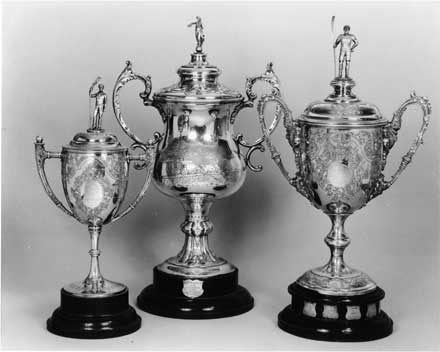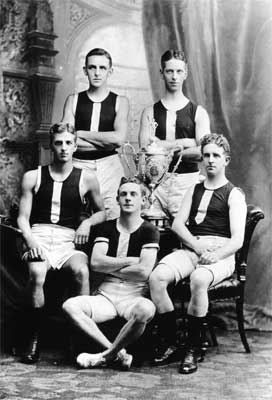History of Mercantile Rowing Club
Table of Contents
Chapters
- The River Yarra
- Early Rowing in Victoria
- The Beginnings (1880-1890)
- Mercantile in the Nineties (1890-1900)
- Sloan, Ivens and Fluctuating Fortunes (1900-1910)
- Dark Days and New Dawn (1910-1920)
- Years of Mixed Success (1920-1930)
- Through the Thirties (1930-1939)
- The Struggle for Survival (1939-1946)
- Building for Success (1946-1950)
- Mercantile to the Melbourne Olympics (1950-1956)
- Rowing to Rome (1956-1960)
- A Pink Cloud on the Horizon (1960-1965)
- The Storm and its Passing (1965-1966)
- A Clear Light Blue Sky (1966-1968)
- High Noon (1968-1970)
- A New Challenge (1970-1973)
- Fire and the Second Building Project (1973)
- Winds of Change (1973-1976)
- The Close of the Century (1976-1980)
- The Base for Success (1980-1984)
- Success (1984-1988)
- Oarsome Foursome (1988-1992)
- A Boathouse for the Best (1992-1996)
- The Rise of the Professional Coach (1996-2000)
- Golden Girls (2000-2005)
Appendices
6. Dark Days and New Dawn (1910-1920)
With the executive virtually unchanged and an experienced and enthusiastic committee, every effort was made to reverse the club's fortunes for the following season. However, despite these endeavours, the 1912-13 year was even more disastrous than the previous season. Regatta entries continued to be poor and the only event in any category won by Mercantile during the entire season was a Senior Pair at Seymour.
Twice, at Henley and Barwon Regattas, Mercantile was able to boat a Senior Eight, but was unsuccessful in both attempts. At Henley, however, the club's representatives performed creditably, winning their heat convincingly and being defeated in the final by only a few feet for the second successive year. This regatta also marked the last appearance in a race of Percy Ivens, who made a comeback to be defeated in the Senior Sculls.
For the second successive year, Mercantile was not represented in the Champion Eight or Sculls and the club's entries in the Champion Fours and Pairs were unsuccessful.
Despite the lack of success in Junior ranks, there were some encouraging efforts, with several crews being defeated only narrowly in the final of their respective events. In Maiden rowing the nucleus of a winning Maiden Eight was competing, with two future club captains in Jack Mounsey and Bob Gregg, rowing stroke and seven.
At the Melbourne Regatta, the club also competed for the first time in the newly formed Lightweight Division and, although the four was unsuccessful, it marked the Mercantile's entry into an area of rowing that was to play such an important part in the future of the club.
The Senior Premiership for 1912-13 was won again by Albert Park, with Civil Service succeeding in the Junior Pennant. For the first time in 13 years, no Mercantile member was offered Interstate selection.
During the year, the membership list had continued to deteriorate and at the date of the 1913 annual report stood at 95, with this being the first time for 10 years it had been less than 100.

The magnificent Challenge Cups for the annual races between the crews from the various Melbourne softgoods warehouses. The trophies were later presented to the Club.
1913 also marked the end of competition for Warehouseman's Challenge Cup and, in view of the club's early association with the Warehouseman's Club, which was a loose affiliation of oarsmen of various clubs employed in the softgoods trade, it is of interest to review the history of this cup. The original cup, to be won three times in succession by crews representing the soft goods warehouses of Melbourne, had been presented in 1869 and had been won outright by Paterson, Lang and Bruce (now Paterson Bruce and Reid) in 1887. The same organisation had annexed the second cup in 1894, with the event then lapsing until 1903, when the race was revived for a third cup, which was won outright by the D. & W. Murray crew in 1907. A fourth and final cup then was presented, which was again won by D. & W. Murray in 1913. Over the years many Mercantile members had competed for the coveted trophy.

The crew from D & W Murray Ltd, winner of the D & W Murray Challenge Cup in 1913.
Standing: J D Cook (2): A L Dobbie (3). Seated: A P Harbeck (Str), A S Johnston (cox), G R Gould (Bow).
With only one regatta win during the previous season, the executive and committee faced a most difficult task in reviving the club's fortunes for 1913-14. It had been four years since the club had won a Senior Eight or Four and during that time successes in Junior and Maiden ranks had been few and far between. It had now become obvious that, to arrest this decline, drastic measures were required if Mercantile was to remain a force in Victorian rowing, with these including the promotion of new names to senior crews and an intensive recruiting campaign to boost the number of crews entered at other levels.
This policy was implemented for Henley for 1913, when the club again boated a Senior Eight, together with three Maiden Crews. Apart from Arch Dobbie and Ted Kenny, the Senior Eight was comprised of oarsmen who had been rowing in Junior ranks during the previous season. While none of these entries were successful, two heat wins were recorded and Mercantile was again boating crews to be respected.
The club's first success for the year came at the Seymour Regatta, with the same crew as the previous season winning the Senior Pair. At the Melbourne Regatta, Mercantile was again well, but unsuccessfully represented, when five crews were entered.
A major breakthrough was achieved at the Upper Yarra and Albert Park Regattas when the Maiden Eight won on both days, this being the club's first win in this category since 1910. The crew was stroked by Jack Mounsey, with Bob Gregg in the seven seat. It also included Bob Rush, who had been an outstanding footballer with the famous Collingwood side 10 years previously and who started rowing with Mercantile in 1909. This was his first regatta win, but he continued to Senior ranks, his last race being at Henley in 1922 as stroke of a senior four when he was 40 years of age. Bob Rush was to serve as treasurer of the Collingwood Football Club for many years and became president of the Australian National Football Council for which he was awarded the O.B.E. The extensive grandstand in the outer ground at Victoria Park is named in his honour. As many current members will recall, Bob Rush continued to enjoy a regular Sunday morning paddle until shortly before his death at 93 years of age. To his dying day he attributed his good health and straightness of his back to his lifetime involvement in the sport of rowing.
The club's only other success for the season was in the Maiden Fours at the Barwon Regatta with this crew also including Jack Mounsey, Bob Gregg and Bob Rush. At Ballarat, Mercantile were again able to enter a Senior Eight, stroked by Bill Potter and while this crew was not successful, it performed creditably. This race was also the last regatta race of the great Bill Potter, whose rowing career had extended over 17 seasons and who was the last competing member of the club who had raced during the previous century. Potter had started his rowing with Mercantile in 1897 and within a season had become a regular member of the club's Senior Eight. In 1898 he was a member of the winning Victorian Inter-colonial Eight. He was also a member of the successful crew in 1900 and again was selected in 1908 and 1911 with both of these crews finishing second. Throughout his career, he was successful in 26 races, including three Champion Eights and four Champion Fours. Apart from his rowing ability Bill Potter was a most versatile sportsman in other areas and, with Alex Sloan, played football for the Fitzroy Club. Potter eventually represented Victoria in four sports - rowing, football, rifle shooting and bowls. He was made a vice-president and life member of the club and maintained a close interest in its affairs, until his death at 96 years of age.
During the 1913-14 season Mercantile's only representation in Championship events was an unsuccessful entry in the Pairs. However, with four wins for the year, including three in Maiden ranks, there was now some light for the future. The club's perserverence in senior rowing also brought some reward, when A. Harvey was selected for the two seat of the Victorian Interstate Eight which was rowed in Melbourne and won by Tasmania.
The Mercantile annual meeting for 1914 was held on August 31, with the 34th annual report of the club having been prepared for publication some weeks before. Despite a small deficiency for the year, the financial report advised of the continued financial prosperity of the club and the fact that two new practice eights had been added to the fleet at a total cost of £154. It pointed out that within the previous two years, six new boats had been purchased: The committee also advised that, during the latter part of the season "a large influx of new members had set in, and that prospects for further additions to the membership roll were particularly promising for the near future". It was further reported that, with the members available after winning their Maiden events, it was anticipated that the club would be more successfully represented in Senior races.
Between the time the report was prepared for publication and the date of the annual meeting, Europe was at war.
Following the Triple Alliance of 1882 between Germany, the Austrian/ Hungarian Empire and Italy; Great Britain, France and Russia signed the Triple Entente in 1907 and, in the years that followed the peace of Europe became increasingly precarious. By 1914, in the words of a German diplomat, "peace remained at the mercy of an accident". That "accident" occurred on June 28, 1914, with the assassination of Archduke Ferdinand, heir to the Austrian/Hungarian Empire in the town of Sarajavo, which was the capital of Bosnia. Austria/Hungary immediately declared war on Serbia, with Russia pledging support for Serbia. For several weeks negotiations continued in the hope of containing the conflict, but the cauldron of the European Powers had been boiling too long. On August 1, Germany declared war on Russia and took the same action two days later against France. The next day Germany invaded Belgium and Great Britain followed this with an immediate declaration of war against Germany.
